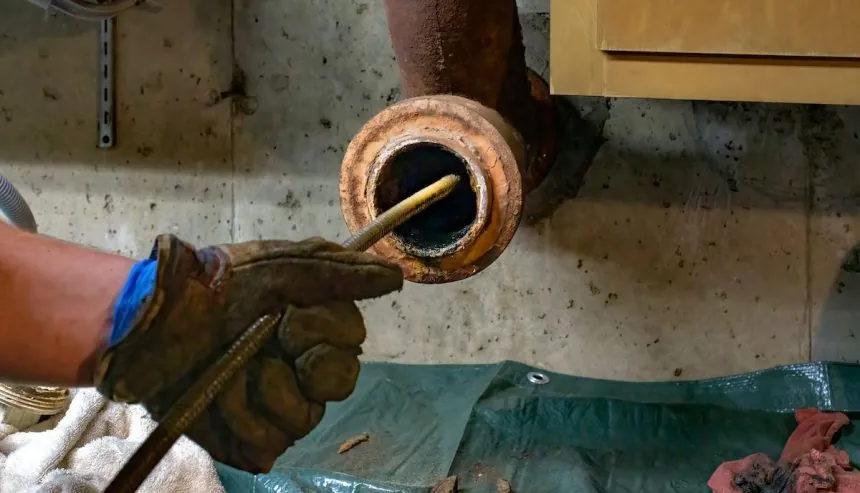A fresh, clean scent in our homes is what we aspire to, with advertising and media telling us to breathe in the crisp, fragranced air. However, if a foul sewer gas odor permeates your house, the dreams of a pleasantly-scented living space are far from reality.
Sewer gas, a noxious blend of chemicals released during the decomposition of human waste, is the culprit. The unmistakable stench of rotten egg smell is a telltale sign of a sewer gas problem. Fortunately, recognizing and eliminating sewer gas smell can be done in a few simple steps. Keep reading for tips on how to get rid of sewer gas smell from your home.
Common Causes of Sewer Gas Smell
The unmistakable stench of sewage wafting through your home differs from other common household odors. It could indicate a severe underlying issue that could potentially lead to dangerous consequences like fires or even explosions, necessitating expensive fire restoration services. If you smell sewer gas and experience symptoms like difficulty breathing, dizziness, or nausea, seek medical attention immediately. Don’t take any chances with your health and safety.
Detecting and addressing sewer gas smells is essential to prevent the situation from escalating into a hazard. By following the tips below, you can avoid accidents that may require disaster restoration:
- Dry water traps. A water trap, or a p-trap, is a curved drain pipe integrated into plumbing systems to retain water and block sewer gases from entering the premises. However, if a drain is not used regularly, the water inside the p-trap can evaporate, leaving it dry and enabling sewer odor to infiltrate the property. This can commonly happen in lesser-used bathrooms or basement drains.
- Broken or damaged sewer vents. Sewer vent pipes run from a property’s plumbing system to its roof, permitting sewer gases to discharge into the outdoor air. A damaged, blocked, or broken sewer vent pipe can lead to odor inside the property. Debris accumulation, corrosion, or physical harm to the vent are all potential factors that cause this.
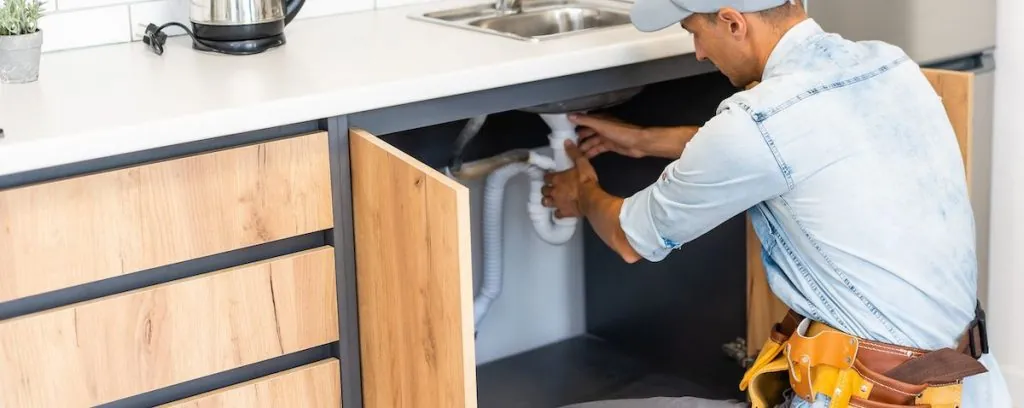
- Cracked or damaged sewer lines. Sewer lines break or become damaged due to age, corrosion, tree root intrusion, or ground movement. When this happens, gases and sewer smells can escape through the cracks or openings, producing a foul smell in the property. Cracked or damaged sewer pipes can be more challenging to identify and repair, as they may require professional inspection and repair services.
- Sewer line backup. A sewer line backup occurs when the main sewer line connecting a property to the municipal sewer system is blocked or obstructed. This can lead to sewage and sewer gases flowing back into the property, producing a potent stench of sewage and sewer gas. Tree root invasion, debris accumulation, or deteriorating pipes may all cause sewer line backups.
- Leaky wax ring. Notice a sewer smell in your bathroom? A defective wax ring seal connecting the toilet flange and the toilet base could also be responsible for a sewage smell in a bathroom. This wax ring may occasionally fail, particularly if the toilet is unsteady and has caused the seal to break. Sewer gas will escape from beneath the toilet if this seal is compromised. If this is the case, you must extract the toilet and install a new wax ring.
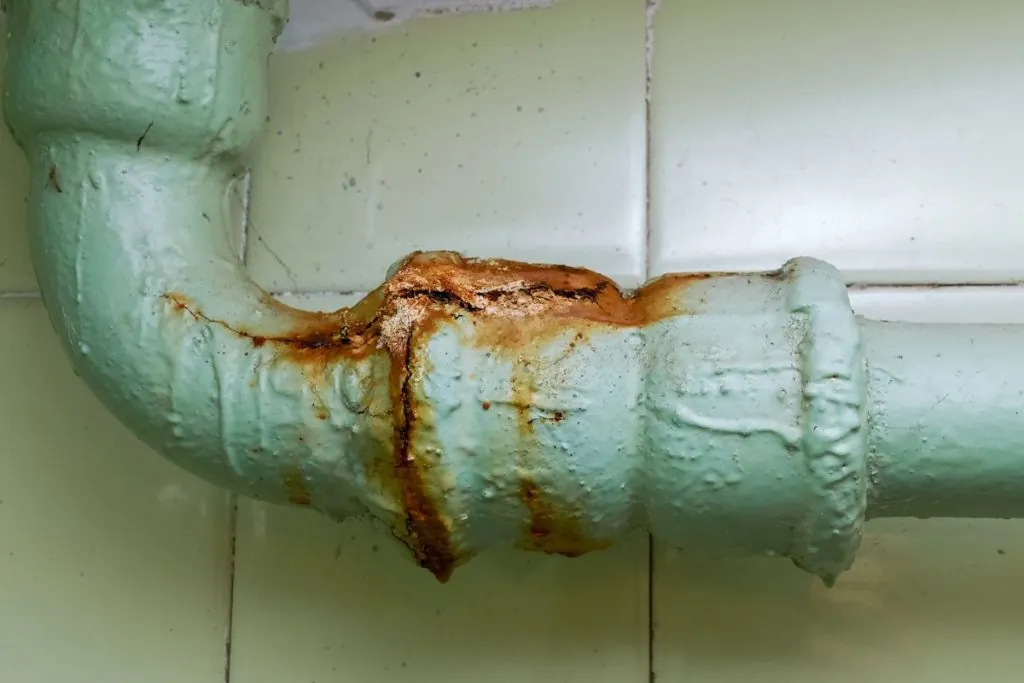
- Improperly installed or sealed plumbing fixtures. If plumbing fixtures, such as toilets, sinks, or floor drains, are not installed properly, they can allow sewer gases to permeate into areas they shouldn’t. This can happen if the wax ring under a toilet is not installed correctly or the drain trap under a sink or floor drain is not sealed tightly. Ensuring all plumbing fixtures are installed and sealed securely can prevent sewer smells.
- Blocked or clogged drains or vents. Blocked or clogged drains or vents can cause a sewer gas smell by prohibiting proper ventilation and drainage of the plumbing system. Accumulated debris, such as food particles, grease, hair, or other foreign objects, can block drains or vents, causing gases to infiltrate the property. Regular maintenance and cleaning of drains and vents can prevent blockages and keep the plumbing system functioning properly.
- Empty or dry floor drains. Common in basements, laundry rooms, and commercial kitchens, floor drains are designed to drain excess water. They’re great when you need to clean your flooring and need to use water. However, if a floor drain is not used frequently or is not used at all, the water in the trap can evaporate, leaving the drain dry and allowing sewer gases to enter.
By following these tips and taking proactive measures, you can prevent sewer gas smells from developing in your property and avoid costly damage that may require water damage remediation services.
How to Remove the Sewer Gas Smell from Your Home
If you’re less than thrilled about the sewage smell in your home, you don’t have to live with it! Follow these steps to remove the sewer gas smell promptly.
Identifying the source of sewer gas smell
The first step in eliminating sewer gas smell is to identify the source of the odor. Where is the odor coming from? Check your home’s drains, toilets, and plumbing fixtures for any signs of leaks or damage. Look for cracks, loose connections, or broken seals allowing sewer gas to escape. Additionally, inspect your sewer vents on the roof or outside your home for any obstruction or damage. A clogged vent pipe could be the source of the smell, and a damaged vent can cause sewer gas to back up into your home.
Repair or replace damaged plumbing connections
If you find any leaks or damage in your plumbing, repair or replace them immediately. Don’t delay getting the problem fixed. Tighten loose connections, replace broken seals, and fix any cracks in pipes or fixtures. Not sure how to go about solving the issue yourself? Consider hiring a professional plumber if you lack confidence in your DIY skills.
Check floor drains and new plumbing to remove odor
Floor drains and new plumbing fixtures, such as the basement or garage drains, can sometimes dry out and allow sewer gas to enter your home. Pour water into these drains to fill the traps and create a barrier that prevents sewer gas from escaping. You can also add a small amount of mineral oil to the gutters to help maintain the water seal and prevent evaporation.
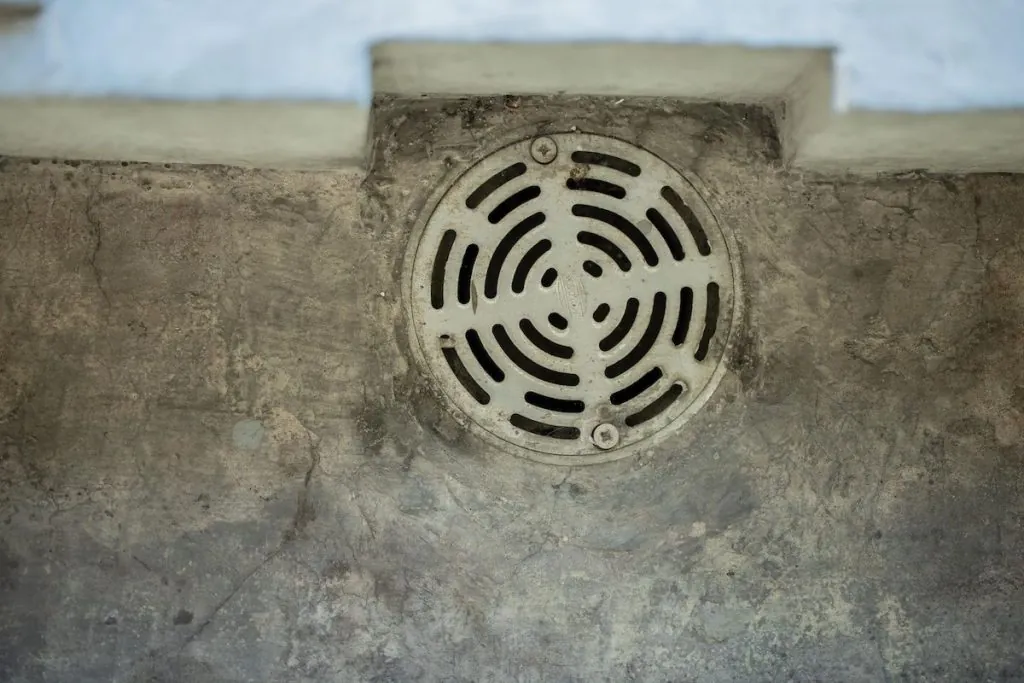
Clean and deodorize drains
Over time, drains can accumulate debris, grease, and other organic matter, producing foul odors. Regularly clean your drains using a mixture of baking soda and vinegar or a cleaning solution recommended by a professional. Flush the drains with hot water to help remove any residual odor-causing substances.
Using odor absorbers for sewer gas smell
Several commercial odor absorbers are available in the market that can help neutralize sewer gas smell. Charcoal-based odor absorbers or baking soda can be placed near the source of the odor or in the affected rooms to absorb and neutralize the smell.
Ventilate your home
Let the clean air in! Adequate ventilation can reduce the sewer gas concentration in your home. Open windows and doors to allow fresh air to circulate and decrease the odor. Use exhaust fans in bathrooms, kitchens, and laundry rooms to vent any odors. Consider using a ventilation system with a carbon filter to remove sewer gas odor from the air.
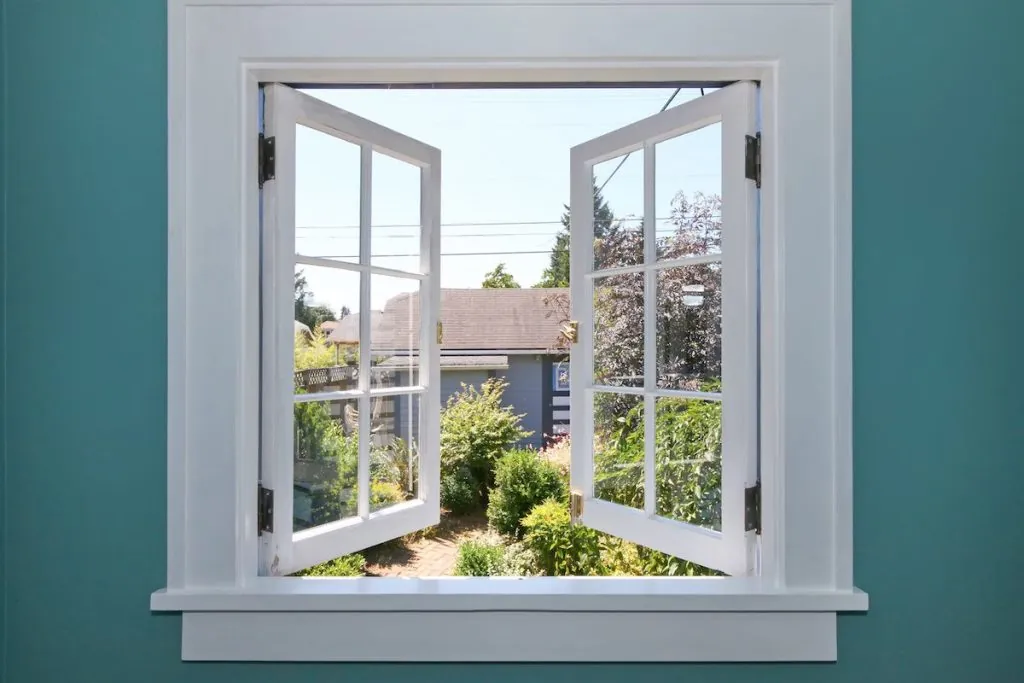
Call a Professional Help for Sewer Gas Smell
Tried to find the problem with zero luck? If you cannot identify or eliminate the source of the sewer gas smell on your own, it’s best to call a professional plumber or a sewer and gas odor specialist. They have the expertise and equipment to detect and resolve complex issues related to sewer gas odor. Also, if there has been a sewage flood in your home, be aware of the risks of DIY sewage flood cleanup. Call the experts when unsure.
Practice preventive maintenance for odor control
Regular preventative maintenance of your plumbing system can prevent sewer gas smell from occurring in the first place. Avoid flushing items down the toilet that can clog your pipes, such as sanitary napkins, diapers, or grease. Schedule regular inspections and maintenance of your plumbing system to catch any potential issues before they become a problem.
Sewer gas smell can be unpleasant and embarrassing, but with a few simple steps, you can quickly eliminate it from your home.
Contact PuroClean for Professional Property Damage Restoration
PuroClean’s property restoration experts are available 24/7 to assist with fire damage restoration, water damage restoration, mold remediation, biohazard cleanups, and more. As the “Paramedics of Property Damage®,” we are the first responders in property remediation, delivering superior service when you need it the most. We serve both residential and commercial clients.
When your home or business is at stake, trust an established company. Our friendly team will guide you through the entire process and ensure that you and your property are treated with care. Contact us at (800) 775-7876 or visit our website to connect with your local PuroClean office today.
